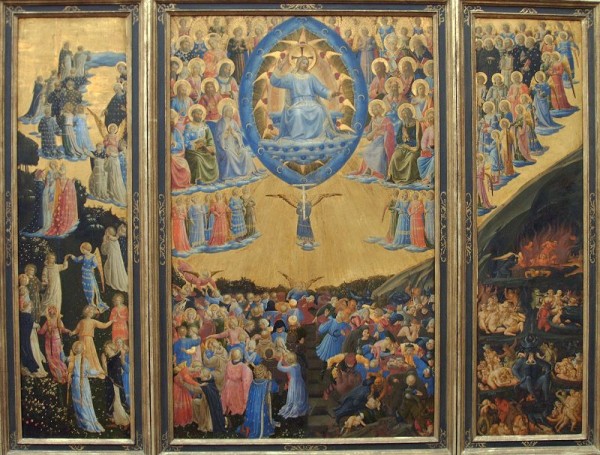The gift of prayer

Saturday at Matins:
From a Homily by St John Chrysostom, Bishop & Doctor
What is there that God has not done for us? The world he has made corruptible for us, and again for us incorruptible. He suffered his Prophets to be ill-treated for our sake, sent them into captivity for us, let them fall into the furnace, and undergo ills without number. Nay, he made them prophets for us, and the Apostles also he made for us. He gave up for us his Only-Begotten, he punishes the devil for us, he has seated us on the Right Hand, he was reproached for us. “For the reproaches of them that reproached you, it says, fell upon me.” Yet still, when we are drawing back after so great favour, he leaves us not, but again entreats, and on our account incites others to entreat for us, that he may show us favour. And so it was with Moses. For to him He says, “Let me alone, that I may blot them out”, that He might drive him upon supplicating on their behalf. And now he does the same thing. Hence he gave the gift of prayer. But this he does, not as himself standing in need of entreaty, but that we might not, from being saved without effort, grow indifferent.
To Jeremiah also he said, “Pray not for this people, for I will not hear you,” not as wishing to stop his praying (for he earnestly longs for our salvation), but to terrify them: and this the prophet also seeing did not cease praying. And when he says to the city “Though thou wash you with nitre, and take you much soap, yet you are stained before me”, it is not that he may cast them into despair that he so speaks, but that he may rouse them to repentance. But when they did not comply in this either, he sends the prophet along with them, so that they might not after all suffer total wreck. For since they did not follow him when he called, he next follows them to discipline them, and hinder their being hurried further into vice, and as a father full of affection does a child who takes all treatment in the same peevish way, conducting him about everywhere with himself, and following him about. This was the reason why he sent not Jeremiah only into Egypt, but also Ezekiel into Babylon, and they did not refuse to go. For when they found their Master love the people exceedingly, they continued themselves to do so likewise. Much as if a right-minded servant were to take compassion upon an intractable son when he saw his father grieving and lamenting about him. And what was there that they did not suffer for them? They were sawn asunder, they were driven out, they were reproached, they were stoned, they underwent numberless grievances. And after all this they would run back to them.
Samuel, for instance, ceased not to mourn for Saul, miserably insulted as he was by him, and injured irreparably. Still he held none of these things in remembrance. And for the people of the Jews, Jeremiah has composed Lamentations in writing. And when the general of the Persians had given him liberty to dwell securely, and with perfect freedom, wherever he pleased, he preferred above dwelling at home the affliction of the people, and their hard durance in a strange land. So Moses left the palace and the sort of living herein, and hasted to be among their calamities. And Daniel abode for twenty days following without food, pinching himself with the most severe fast, that he might reconcile God to them. And the three Children too, when in the furnace, and so fierce a fire, put up a supplication for them. For it was not on their account that they were grieved, as they were saved; but since they considered that then was the time for the greatest boldness of speech, they consequently prayed in their behalf; hence too they said, “In a contrite heart and an humble spirit let us be accepted.” For them Joshua also rent his garments. For them Ezekiel too wailed and lamented when he saw them cut down. And Isaias said, “Let me alone, I will weep bitterly.” And before this, when he did not venture openly to pray for a remittance of their sad estate, he sought for some limited period, when he says, “How long, O, Lord?” For full of affectionateness is the whole race of the saints.
